Monday, October 8th 2018

ASUS Launches Z390 Series Motherboards
Almost exactly one year after introducing six-core Coffee Lake processors alongside Z370 motherboards, Intel is back with more cores, higher clocks and the new Z390 chipset. The new 9th Generation Intel Core processor family offers up to eight cores and 16 threads of parallel processing horsepower that's perfect for content creation, heavy multitasking, and other demanding workloads. With clock speeds as high as 5GHz on the flagship Core i9-9900K, these new processors also raise the bar for gaming performance, especially if you're streaming, recording, and chatting simultaneously.
ASUS is excited to support this new generation of Intel processors with a wide variety of new motherboards based on the Intel Z390 chipset. The collection is led by a diverse cast from the Republic of Gamers that elevates gaming and overclocking to new heights. ROG Strix offers more streamlined alternatives that include a mighty Mini-ITX model, while TUF Gaming focuses on the essentials to hit more affordable price points. Outside the gaming sphere, the Prime family serves up signature ASUS features in a professional package, and the WS sets the stage for serious workstations and prosumer builds.There's an ROG or ASUS Z390 motherboard for everyone, whether you're a seasoned veteran who tunes to perfection, a hardcore gamer obsessed with performance, or a first-time builder seeking a seamless PC experience. For further details about our ROG lineup please visit ASUS ROG. Our buying guide with complete specifications and images for the entire lineup of Z390 motherboards is located at Edge Up ASUS.
Automated intelligence optimizes performance
The latest 9th Generation Intel Core processor family arrives with a trio of unlocked processors ripe for overclocking, and our motherboards have learned new tricks for tapping into their potential. ASUS AI Overclocking makes automatic tuning faster and smarter than ever before. Available in Windows or directly through the UEFI, it profiles the CPU and cooling to predict the optimal configuration for each individual system. We created a proprietary algorithm that rates the quality of the silicon to see where your chip lands on the spectrum. The onboard intelligence also watches system vitals like temperatures, fan speeds, and power draw to evaluate cooling performance. Dedicated hardware makes the monitoring seamless, and you can allow continuous training that adapts to upgrades, seasonal ambient temperature changes, and dust buildup over time.
AI Overclocking is available on the Prime Z390-A, WS Z390-PRO, and all ROG models except for the Strix Z390-H Gaming. It's not the only automated solution, either. Our newest 5-Way Optimization software offers an alternate approach to one-click tuning that simulates a human overclocker by increasing clock speeds, tweaking voltages, and testing stability before pursuing higher frequencies. This technique gets the CPU extremely close to the maximum speed that can be attained with manual tuning, and connected fans can also be calibrated as part of the process. TUF Gaming and lower-end ROG Strix and Prime models that lack 5-Way still have OC Tuner, which uses predefined profiles to hit higher speeds at the touch of a button. Auto-tuners are perfect for fresh recruits who are new to overclocking, and they provide experts an easy way to quickly assess a system before proceeding with manual tuning.
Memory tweaks increase speed and improve stability
Memory frequencies continue to climb, and our Z390 motherboards have evolved to keep pace. They feature OptiMem II, which reimagines memory traces from the ground up-literally. OptiMem II adds a dedicated ground plane and surrounding ground trace with via stitching to reduce interference for the traces connecting the CPU and memory slots. It also routes traces through different PC layers to cut down on crosstalk. These changes combine with our T-Topology trace layout to enable DDR4 speeds in excess of 4266MHz with all slots populated, even if you're using RGB-infused RAM.
Memory is often to blame if systems fail to boot, so years ago we developed a MemOK! feature that rolls back to safe defaults and adjusts memory parameters to get the system to POST. This failsafe usually has to be activated by pressing a button on the board, but MemOK! II adopts a toggle-based switch that lets you turn it on once. When a memory-related POST problem is detected, MemOK! II automatically applies multiple profiles to bring your system to life.
Smarter cooling for both liquid and air
The higher power consumption and heat output that comes with additional CPU cores makes liquid cooling a requirement for serious overclocking, so all of our Z390 motherboards have one AIO pump header preconfigured for the all-in-one liquid coolers seen in most custom builds. Models in the middle of the range and up include another header for the stand-alone pumps used in custom loops, and ROG goes even further with dedicated sensors for monitoring coolant temperatures and flow rate.
Fan Xpert 4 manages complete system cooling capable of adapting to any workload. System fans plugged into the motherboard are typically limited to reacting to changes in the CPU or motherboard temperature, which isn't ideal for gaming and other workloads that heat up the graphics card more than other components. With Fan Xpert 4, the motherboard can react to changes in the GPU temperature on select graphics cards to provide smarter system cooling for a broader range of scenarios.
Let your Aura Sync shine
RGB lighting has revolutionized how people personalize their PCs, and Aura Sync is the most complete implementation on the market. It synchronizes colors and effects across a diverse cast of system components and peripherals from ASUS and our partners, enabling cohesive illumination for your entire battlestation with just a few clicks. Developers can also use the Aura SDK to harness the lighting with their own software; for example, Call of Duty: Black Ops 4 has special Aura effects that enhance immersion by reacting to in-game events and environments.
Extensive connectivity inside and out
At least two M.2 slots are available across our Z390 lineup, which gives you the flexibility to run dual NVMe SSDs without connecting any cables. Alternatively, you can install a primary SSD and use the second slot for Intel Optane Memory that accelerates access to a much larger hard drive. More of our boards are equipped with accompanying M.2 heatsinks to reduce SSD temperatures and ward off thermal throttling with sustained transfers.
The ROG Maximus XI Extreme and Gene support up to four M.2 drives, half of which are sandwiched between new heatsinks on our latest DIMM.2 module. DIMM.2 takes advantage of the Z390 platform's support for SSD RAID arrays attached to the CPU, which avoids the DMI bottleneck between the processor and chipset.
Intel Gigabit WiFi is available on select of ROG, Strix, and TUF Gaming models. The 802.11ac Wave 2 solution connects directly to the chipset via Intel's CNVi interface. It supports 2x2 MU-MIMO and can push throughput well past 1Gbps on compatible routers like the ROG Rapture GT-AC5300. We use reliable Intel Gigabit Ethernet controllers on virtually every board in the Z390 series, and the ROG Maximus XI Extreme and Formula take networking to the next level by adding Aquantia controllers capable of reaching 5Gbps.
All-new for this generation, the ASUS Node header allows monitoring and control via other devices connected to ROG, Strix Z390-E, Strix Z390-F, and Prime-A boards. Multiple devices can connect simultaneously, opening up interesting possibilities for DIY gear.
Subtle details
Several new board enhancements extend across the lineup, like overvoltage and ESD protection that help protect the boards from electrical damage. The VRMs are all digital, right down to the entry-level Prime models, and the PCIe slots are secured with extra solder to hold tightly under the strain of heavy graphics cards. Further SafeSlot reinforcement strengthens the walls and anchoring hook starting in the TUF Gaming series, where there's a greater chance of running a monster GPU cooler, and pre-mounted I/O shields simplify installation on ROG and Strix motherboards.
More refinement is found inside the UEFI, which offers a streamlined interface for beginners and an advanced mode with more options for experts. Integrated search functionality makes it easy to find the setting you're seeking within seconds, and any changes are summarized before you exit or save, so you can quickly double-check before pulling the trigger. Anyone can update the latest UEFI with the firmware's integrated EZ Flash 3 tool, which automatically downloads and installs the right BIOS for your board.
Driver discs are rarely used, so our Q-Installer software lets you download all of the latest drivers and utilities for your board with a single click, or select only the ones you want. Our new Armoury Crate utility combines useful functions for multiple ASUS products in a single UWP app. Introduced this summer with new ROG laptops, Armoury Crate is expanding into Z390 motherboards and other components.
ROG raises the bar for Z390 motherboards
Since its inception way back in 2006, the Republic of Gamers has set the standard for gaming and enthusiast motherboards. We created the category, and with each new generation our designers and engineers refine the formula in pursuit of faster performance, more customization, and a better overall gaming experience.
For Z390, the Maximus XI series embraces the dark side with blacked-out boards in multiple sizes and variations. It leads with the unparalleled Maximus XI Extreme for dream builds, which is followed by armour-clad near twins in Maximus XI Formula and Code. The Maximus XI Gene rethinks our approach to microATX, and the Maximus XI Hero strikes the right balance in three different flavors.
Democratizing the republic with ROG Strix
ROG Strix fills the space below the Maximus series with more affordable options that retain the look and feel people have come to expect from the Republic of Gamers. These models keep must-have features for gaming and overclocking but are not as extreme as their ROG siblings. In the Z390 series, the Mini-ITX Strix Z390-I Gaming is joined by three full-sized ATX boards: the Strix Z390-E, Z390-F, and Z390-H Gaming.
Build a true battlestation with TUF Gaming
TUF offers a new direction for gaming hardware that combines builder-friendly features with battlestation-ready themes. Its unique aesthetic and focus on reliability and gaming essentials are shared by a growing collection of additional hardware we developed in-house, plus contributions from a broader TUF Gaming Alliance made up of industry titans that produce compatible parts. You can already buy matching memory, coolers, and power supplies along with a TUF Gaming case, and additional hardware is on the way.
The TUF Gaming Z390 series spreads across five different models that are ultimately very similar. You can choose between the TUF Z390-PRO Gaming and Z390-PLUS Gaming for ATX along with the TUF Z390M-PRO Gaming for microATX, with WiFi-equipped versions thrown in for good measure.
WS and Prime do more than just gaming
The recent resurgence of PC gaming is partly responsible for the litany of gaming boards in our lineup, but desktops can do a lot more, especially with eight CPU cores at their disposal. Our WS and Prime motherboards are more businesslike in their approach, with an eye toward professionals and prosumers building powerful machines geared more for productivity instead of play. They also appeal to enthusiasts and even gamers who want many of the same features with an entirely different look.
The WS Z390 PRO loads up on expansion capacity for Coffee Lake workstations, while the Prime Z390-A hits the sweet spot ASUS aficionados expect with each new generation. Basic builds can get by with the Prime Z390-P and Z390M-PLUS.
ASUS is excited to support this new generation of Intel processors with a wide variety of new motherboards based on the Intel Z390 chipset. The collection is led by a diverse cast from the Republic of Gamers that elevates gaming and overclocking to new heights. ROG Strix offers more streamlined alternatives that include a mighty Mini-ITX model, while TUF Gaming focuses on the essentials to hit more affordable price points. Outside the gaming sphere, the Prime family serves up signature ASUS features in a professional package, and the WS sets the stage for serious workstations and prosumer builds.There's an ROG or ASUS Z390 motherboard for everyone, whether you're a seasoned veteran who tunes to perfection, a hardcore gamer obsessed with performance, or a first-time builder seeking a seamless PC experience. For further details about our ROG lineup please visit ASUS ROG. Our buying guide with complete specifications and images for the entire lineup of Z390 motherboards is located at Edge Up ASUS.
Automated intelligence optimizes performance
The latest 9th Generation Intel Core processor family arrives with a trio of unlocked processors ripe for overclocking, and our motherboards have learned new tricks for tapping into their potential. ASUS AI Overclocking makes automatic tuning faster and smarter than ever before. Available in Windows or directly through the UEFI, it profiles the CPU and cooling to predict the optimal configuration for each individual system. We created a proprietary algorithm that rates the quality of the silicon to see where your chip lands on the spectrum. The onboard intelligence also watches system vitals like temperatures, fan speeds, and power draw to evaluate cooling performance. Dedicated hardware makes the monitoring seamless, and you can allow continuous training that adapts to upgrades, seasonal ambient temperature changes, and dust buildup over time.
AI Overclocking is available on the Prime Z390-A, WS Z390-PRO, and all ROG models except for the Strix Z390-H Gaming. It's not the only automated solution, either. Our newest 5-Way Optimization software offers an alternate approach to one-click tuning that simulates a human overclocker by increasing clock speeds, tweaking voltages, and testing stability before pursuing higher frequencies. This technique gets the CPU extremely close to the maximum speed that can be attained with manual tuning, and connected fans can also be calibrated as part of the process. TUF Gaming and lower-end ROG Strix and Prime models that lack 5-Way still have OC Tuner, which uses predefined profiles to hit higher speeds at the touch of a button. Auto-tuners are perfect for fresh recruits who are new to overclocking, and they provide experts an easy way to quickly assess a system before proceeding with manual tuning.
Memory tweaks increase speed and improve stability
Memory frequencies continue to climb, and our Z390 motherboards have evolved to keep pace. They feature OptiMem II, which reimagines memory traces from the ground up-literally. OptiMem II adds a dedicated ground plane and surrounding ground trace with via stitching to reduce interference for the traces connecting the CPU and memory slots. It also routes traces through different PC layers to cut down on crosstalk. These changes combine with our T-Topology trace layout to enable DDR4 speeds in excess of 4266MHz with all slots populated, even if you're using RGB-infused RAM.
Memory is often to blame if systems fail to boot, so years ago we developed a MemOK! feature that rolls back to safe defaults and adjusts memory parameters to get the system to POST. This failsafe usually has to be activated by pressing a button on the board, but MemOK! II adopts a toggle-based switch that lets you turn it on once. When a memory-related POST problem is detected, MemOK! II automatically applies multiple profiles to bring your system to life.
Smarter cooling for both liquid and air
The higher power consumption and heat output that comes with additional CPU cores makes liquid cooling a requirement for serious overclocking, so all of our Z390 motherboards have one AIO pump header preconfigured for the all-in-one liquid coolers seen in most custom builds. Models in the middle of the range and up include another header for the stand-alone pumps used in custom loops, and ROG goes even further with dedicated sensors for monitoring coolant temperatures and flow rate.
Fan Xpert 4 manages complete system cooling capable of adapting to any workload. System fans plugged into the motherboard are typically limited to reacting to changes in the CPU or motherboard temperature, which isn't ideal for gaming and other workloads that heat up the graphics card more than other components. With Fan Xpert 4, the motherboard can react to changes in the GPU temperature on select graphics cards to provide smarter system cooling for a broader range of scenarios.
Let your Aura Sync shine
RGB lighting has revolutionized how people personalize their PCs, and Aura Sync is the most complete implementation on the market. It synchronizes colors and effects across a diverse cast of system components and peripherals from ASUS and our partners, enabling cohesive illumination for your entire battlestation with just a few clicks. Developers can also use the Aura SDK to harness the lighting with their own software; for example, Call of Duty: Black Ops 4 has special Aura effects that enhance immersion by reacting to in-game events and environments.
Extensive connectivity inside and out
At least two M.2 slots are available across our Z390 lineup, which gives you the flexibility to run dual NVMe SSDs without connecting any cables. Alternatively, you can install a primary SSD and use the second slot for Intel Optane Memory that accelerates access to a much larger hard drive. More of our boards are equipped with accompanying M.2 heatsinks to reduce SSD temperatures and ward off thermal throttling with sustained transfers.
The ROG Maximus XI Extreme and Gene support up to four M.2 drives, half of which are sandwiched between new heatsinks on our latest DIMM.2 module. DIMM.2 takes advantage of the Z390 platform's support for SSD RAID arrays attached to the CPU, which avoids the DMI bottleneck between the processor and chipset.
Intel Gigabit WiFi is available on select of ROG, Strix, and TUF Gaming models. The 802.11ac Wave 2 solution connects directly to the chipset via Intel's CNVi interface. It supports 2x2 MU-MIMO and can push throughput well past 1Gbps on compatible routers like the ROG Rapture GT-AC5300. We use reliable Intel Gigabit Ethernet controllers on virtually every board in the Z390 series, and the ROG Maximus XI Extreme and Formula take networking to the next level by adding Aquantia controllers capable of reaching 5Gbps.
All-new for this generation, the ASUS Node header allows monitoring and control via other devices connected to ROG, Strix Z390-E, Strix Z390-F, and Prime-A boards. Multiple devices can connect simultaneously, opening up interesting possibilities for DIY gear.
Subtle details
Several new board enhancements extend across the lineup, like overvoltage and ESD protection that help protect the boards from electrical damage. The VRMs are all digital, right down to the entry-level Prime models, and the PCIe slots are secured with extra solder to hold tightly under the strain of heavy graphics cards. Further SafeSlot reinforcement strengthens the walls and anchoring hook starting in the TUF Gaming series, where there's a greater chance of running a monster GPU cooler, and pre-mounted I/O shields simplify installation on ROG and Strix motherboards.
More refinement is found inside the UEFI, which offers a streamlined interface for beginners and an advanced mode with more options for experts. Integrated search functionality makes it easy to find the setting you're seeking within seconds, and any changes are summarized before you exit or save, so you can quickly double-check before pulling the trigger. Anyone can update the latest UEFI with the firmware's integrated EZ Flash 3 tool, which automatically downloads and installs the right BIOS for your board.
Driver discs are rarely used, so our Q-Installer software lets you download all of the latest drivers and utilities for your board with a single click, or select only the ones you want. Our new Armoury Crate utility combines useful functions for multiple ASUS products in a single UWP app. Introduced this summer with new ROG laptops, Armoury Crate is expanding into Z390 motherboards and other components.
ROG raises the bar for Z390 motherboards
Since its inception way back in 2006, the Republic of Gamers has set the standard for gaming and enthusiast motherboards. We created the category, and with each new generation our designers and engineers refine the formula in pursuit of faster performance, more customization, and a better overall gaming experience.
For Z390, the Maximus XI series embraces the dark side with blacked-out boards in multiple sizes and variations. It leads with the unparalleled Maximus XI Extreme for dream builds, which is followed by armour-clad near twins in Maximus XI Formula and Code. The Maximus XI Gene rethinks our approach to microATX, and the Maximus XI Hero strikes the right balance in three different flavors.
Democratizing the republic with ROG Strix
ROG Strix fills the space below the Maximus series with more affordable options that retain the look and feel people have come to expect from the Republic of Gamers. These models keep must-have features for gaming and overclocking but are not as extreme as their ROG siblings. In the Z390 series, the Mini-ITX Strix Z390-I Gaming is joined by three full-sized ATX boards: the Strix Z390-E, Z390-F, and Z390-H Gaming.
Build a true battlestation with TUF Gaming
TUF offers a new direction for gaming hardware that combines builder-friendly features with battlestation-ready themes. Its unique aesthetic and focus on reliability and gaming essentials are shared by a growing collection of additional hardware we developed in-house, plus contributions from a broader TUF Gaming Alliance made up of industry titans that produce compatible parts. You can already buy matching memory, coolers, and power supplies along with a TUF Gaming case, and additional hardware is on the way.
The TUF Gaming Z390 series spreads across five different models that are ultimately very similar. You can choose between the TUF Z390-PRO Gaming and Z390-PLUS Gaming for ATX along with the TUF Z390M-PRO Gaming for microATX, with WiFi-equipped versions thrown in for good measure.
WS and Prime do more than just gaming
The recent resurgence of PC gaming is partly responsible for the litany of gaming boards in our lineup, but desktops can do a lot more, especially with eight CPU cores at their disposal. Our WS and Prime motherboards are more businesslike in their approach, with an eye toward professionals and prosumers building powerful machines geared more for productivity instead of play. They also appeal to enthusiasts and even gamers who want many of the same features with an entirely different look.
The WS Z390 PRO loads up on expansion capacity for Coffee Lake workstations, while the Prime Z390-A hits the sweet spot ASUS aficionados expect with each new generation. Basic builds can get by with the Prime Z390-P and Z390M-PLUS.
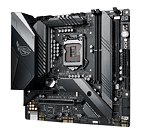
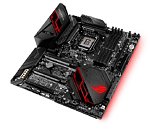
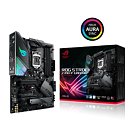
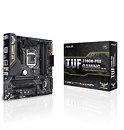
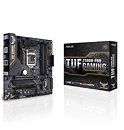

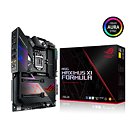
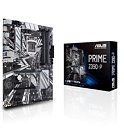
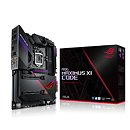
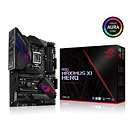
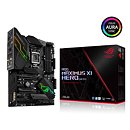
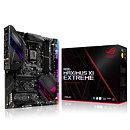
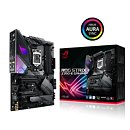
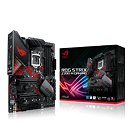
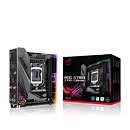
11 Comments on ASUS Launches Z390 Series Motherboards
So many options, so little to really differentiate each other.
Also a bit of a missed opportunity IMO dropping a PLX chip in the WS, whilst the Maximus Extreme doesn't.
And btw, WTH is going on?!? Why there are so little PCI-E slots on those boards???